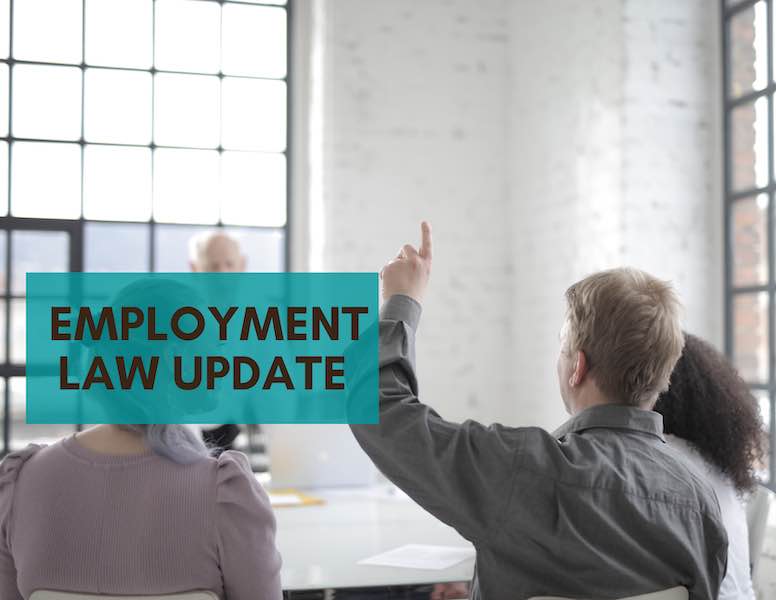Key Amendments to the Employment Act 1955
by Ivan Aaron Francis ~ 7 November 2022
News that the Employment (Amendment) Act 2022 was to come into force on 1st September 2022 sent Malaysian employers into panic-mode as the announcement only allowed employers a few weeks to ensure compliance with the applicable provisions. Fortunately, the implementation has been postponed to 1st January 2023, giving employers ample time and opportunity to comply with the Employment Act (“EA”) and revise their employment contracts. This article will set out some of the key amendments employers and employees should take note of.
1) Widening the scope of employees protected under the Employment Act
The largest change to the employment landscape in Malaysia pursuant to the Employment (Amendment of First Schedule) Order 2022 is that the First Schedule has been widened to include any person who has entered into a contract of service, meaning the EA now applies to all employees irrespective of wage. Notwithstanding this, certain provisions in respect of overtime payments and termination benefits will not apply to employees earning more than RM4000/month.
The previous position was that only employees earning up to RM2000/month were protected under the Act. This widening of EA’s scope means employers should ensure that their employment contracts comply with the minimum standards set under the EA. Any employment terms that are less favourable to the employee can be rendered void and unenforceable.
2) Increase in maternity leave period
The 60 days of maternity leave entitlement under the EA has been increased to 98 days. This is a welcome change to match international labour standards and ensure that working mothers have sufficient time to recuperate and care for their child.
3) Paternity leave
The EA now provides working fathers 7 days of paid paternity leave for each confinement, up to a limit of 5 confinements. Although 7 days may not be enough, it is a good start in the Malaysian framework.
4) Flexible Working Arrangement
The EA now provides that employees can submit a written application for flexible working arrangement to modify their hours, days or place of work. Any application must be approved or rejected by the employer within 60 days in writing, and any rejection must be justified.
Besides the ambiguity in the framework, not all job positions are suitable for flexible working arrangement and require physical presence. Naturally employers should draft and implement policies to cover flexible working arrangements as it will make such employments much more competitive and attractive to the market.
5) Notice to raise awareness on sexual harassment
Employers must now exhibit conspicuously at the place of employment, a notice to raise awareness on sexual harassment.
6) Lesser maximum working hours
The EA now provides that the maximum working hours for employees are reduced from 48 to 45 hours per week. This means that employees are now entitled to overtime payments for any extra hours spent beyond the 45 hours.
7) Sick leave and hospitalisation leave
Prior to the amendment, an employee is entitled to paid sick leave of 14 to 21 days, depending on their length of employment, where no hospitalisation is required. Where hospitalisation is required, an employee is entitled to 60 days of paid sick leave provided that the total number of paid sick leaves taken in a year does not exceed 60 days
Pursuant to the new amendment, the 60 days of paid sick leave for hospitalisations are now in addition to the 14 to 21 days of paid sick leave where hospitalisation is not necessary.
8) Prohibition of forced labour
New provisions have been included to prohibit forced labour whereby employers who threaten, deceive or force an employee to do any work or prevent that employee from leaving a place of work after work is done, are liable to a fine not exceeding RM100,000 or imprisonment not exceeding 2 years or both.
9) Employing and terminating foreign employees
Employers must obtain prior approval from the Director General of Labour before employing foreign employees. The Director General can approve such applications and fix conditions to them where necessary.
On the other hand, if a foreign employee is terminated, the employer must inform the Director General of Labour within 30 days. If the foreign employee absconds from the employment, the employer shall inform the Director General within 14 days.
10) Director-General’s power to inquire and decide disputes regarding discrimination in employment
The Director General of Labour has power to inquire and determine any disputes and matters relating to discrimination in employment. The DG can make an order and any employer failing to comply with said order commits an offence.
On the whole, employers are advised to review their employment terms and policies to ensure compliance with the EA to avoid sanction.

